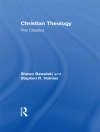For the better part of its history sociology shared with commonsense its assumption of the ‘nature-like’ character of society – and consequently developed as the science of unfreedom. In this powerful and engaging work, first published in 1976, Professor Bauman outlines the historical roots of such a science and describes how the new trends in sociology emerging from phenomenology and existentialism do not challenge this preoccupation. Rather, he claims, they deepen and extend it by stressing the key role of commonsense, particularly the ways in which it is sustained and embedded in the routines and assumptions of everyday life.
Professor Bauman sets out the form of a critical sociology, based on emancipatory reason. His main concerns are the `validity“ of commonsense and the truth of a theory which would resolve to transcend the limitations of commonsensical evidence. Aimed at human liberation A Critical Sociology is designed to question the very same routines and assumptions of everyday life informed by commonsense.












